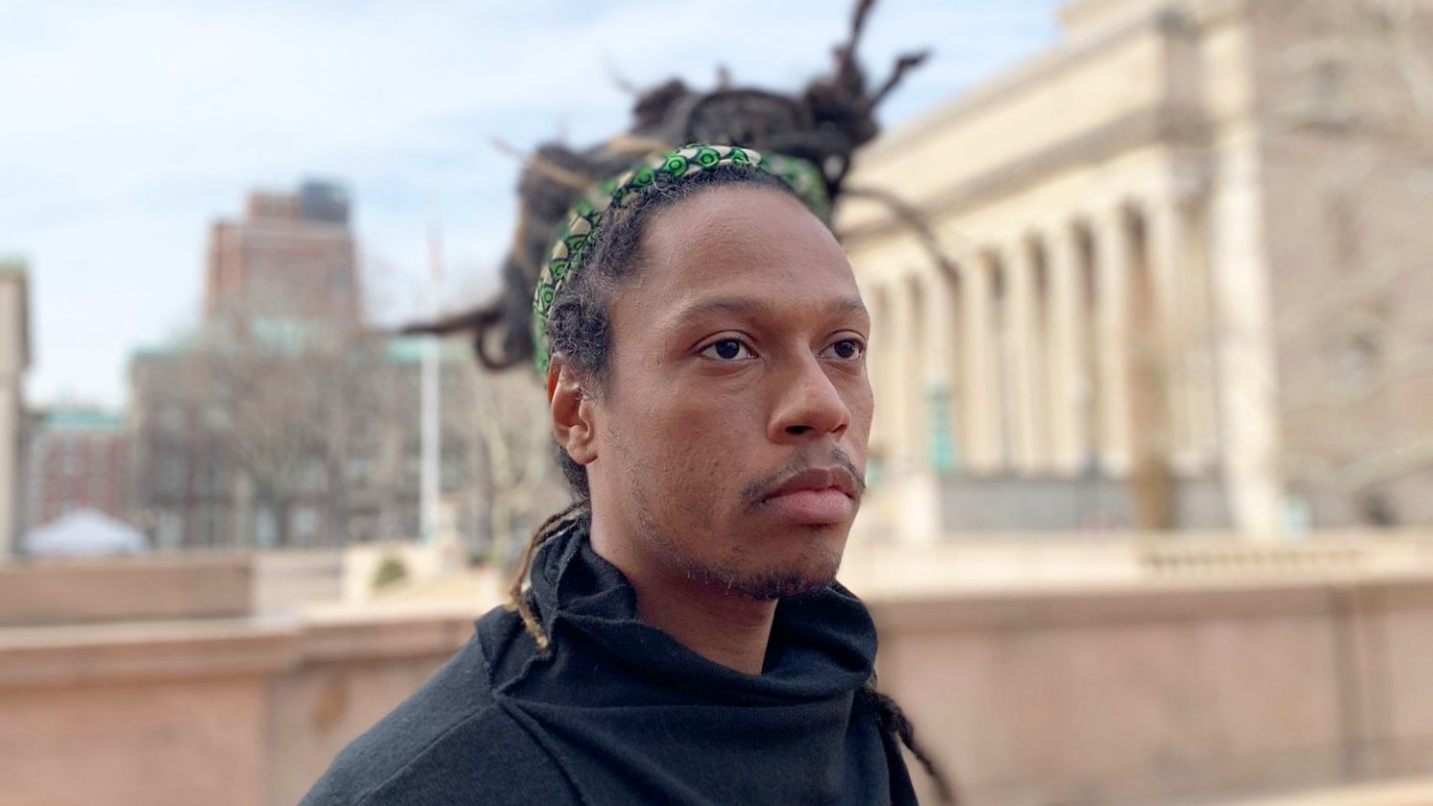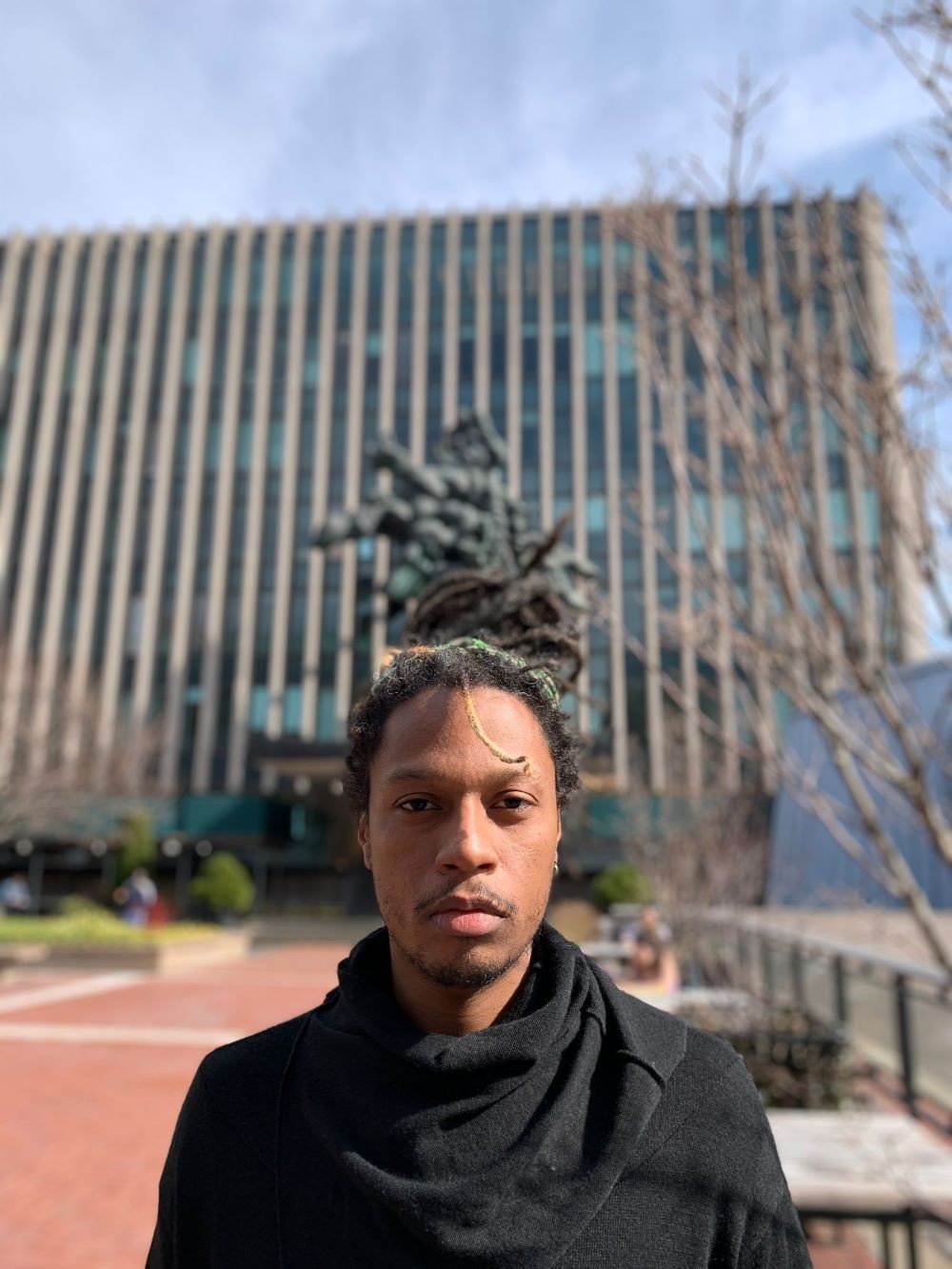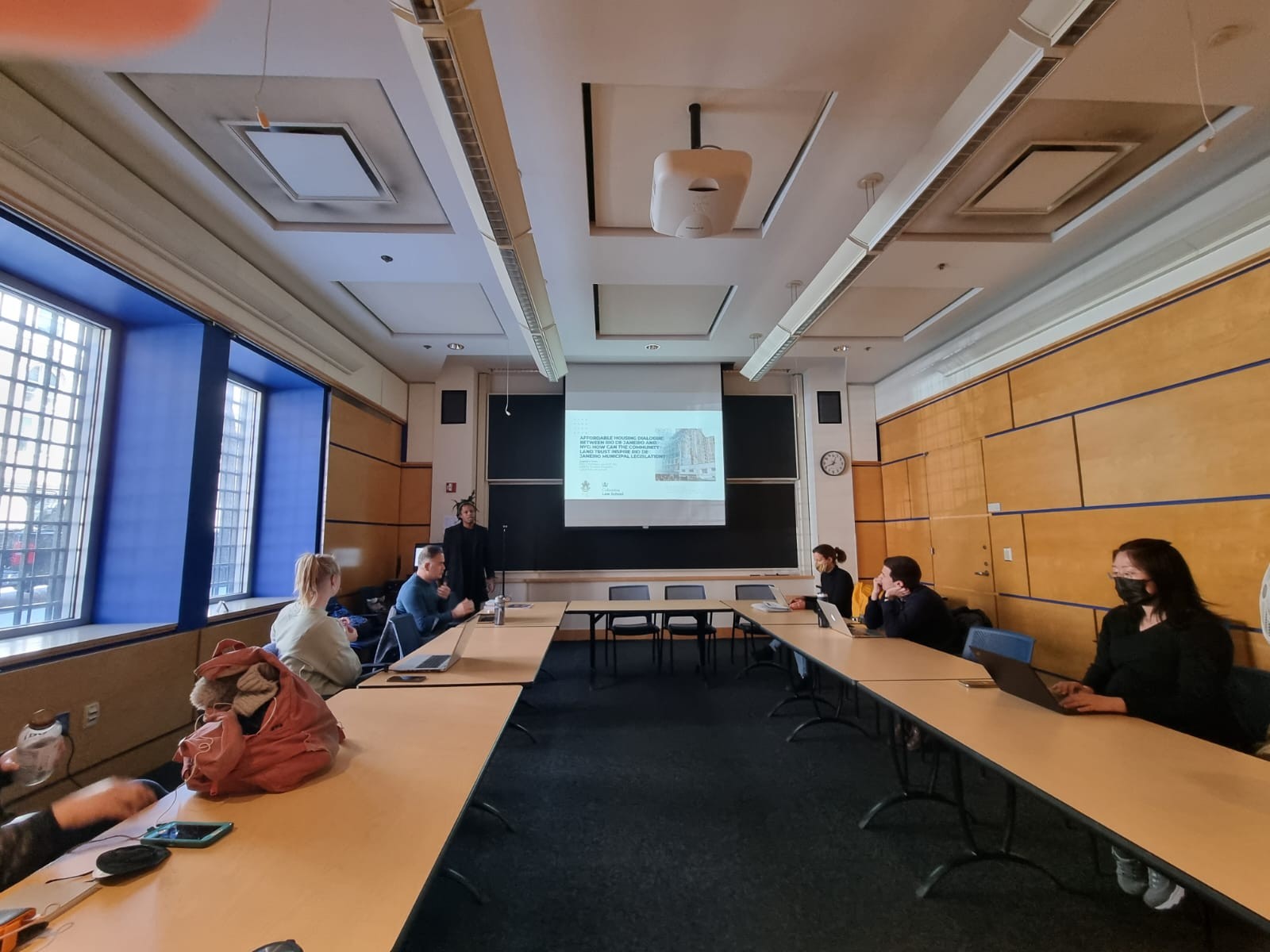Rio Center Stories: Leandro Serra, Visiting Ph.D. Student at Columbia Law School

Leandro Serra is a Ph.D. candidate at PPG Law PUC-Rio and is currently a Visiting Ph.D. Student at Columbia Law School (March 2022 - September 2022), where he does research on Affordable/Low-Income Housing, specifically the Community Land Trust in NYC. Read our interview with him below.
CGC Rio: Hi Leandro. Thank you so much for your time! Can you start by telling us a little bit about your professional journey and about your research at Columbia University?
Leandro Serra: Hi Maria Eduarda. I thank you for this opportunity.
In undergraduate and master's degrees, I studied Geography. My first undergraduate experiences were in public schools with agroecology and audiovisual activities. I carried out research on social technologies with quilombola communities on the Trombetas River, in the Amazon. Location where I did research in the master's degree, analyzing public policies for family farming.
I also have experience as a popular educator.
In the doctorate, I study land regularization for informal urban settlements. In my thesis I intend to carry out a theoretical-methodological approach to the Geo Law that encompasses the affordable housing and the concept of territory. I believe it is important that the instances of law understand the complexity of social reality for guarantee basic rights of vulnerable families.
At Columbia University I am studying the Community Land Trust (CLT) which is a type of collective ownership that was born in the USA in a black and rural community in the 1960s and is present in several countries around the world. The objective of the CLT is to guarantee the permanence of families who live in places with land valued by the market. It is a legal mechanism that removes the market value of the land, which becomes a collective property represented by a non-profit association of residents. There are 225 CLT's in the US and 15 in New York City.
CGC Rio: And what made you apply to Columbia Law School?
Leandro: I heard about the Columbia Global Center - Rio in 2017 and started following the university's movements. The Global Center certainly influenced my desire to study at Columbia because I felt that the institution was closer.
Another important factor was the history of social participation that Columbia has in American society.
As I always looked for opportunities at the best institutions, I chose Columbia to be a visiting doctoral student, despite having also been approved at a university in Germany.

CGC Rio: Why did you choose to focus your studies on the Community Land Trust?
Leandro: I learned about CLT through Catalytic Communities, a non-profit organization that aims to generate effective models of community leadership and the development of informal settlements. By participating in the meetings, I was sure of the importance that the CLT has for guaranteeing affordable housing in Brazil. The CLT is an idea that has been debated in some municipalities and is currently contained in the Review of the Master Plan for Sustainable Urban Development (2021-2022). CLT can become a reality in our city if approved by the City Council.
Therefore, this is an important political moment and we need to study international experiences in order to have an efficient CLT model in Brazil.
CGC Rio: How has the time spent at Columbia contributed to and affected your mission? How impactful has this experience been to your career?
Leandro: It's been wonderful to study at Columbia and live in New York. The university breathes professionalism and efficiency. People are very involved in their research and have a dynamic of knowledge exchange and networking that is very important for an academic career. We are students from all over the world who care about real problems in their society. At Columbia I found professors and classes in several departments that were relevant to my research. This makes it easier to have a complex notion of my object of study and to seek solutions that dialogue with social movements, universities, public and private institutions. Columbia University, as NYC, has a plural environment in constant motion.
CGC Rio: How was the experience of presenting your research during the Visiting Scholar Forum at Columbia Law School?
Leandro: It was a challenging experience. The Visiting Scholar Program welcomes students from all over the world who have different academic approaches. So it was challenging to explain my research to an audience from different countries and with different interests. It was also challenging because the students are very demanding and make provocations that are very constructive to understand aspects from other perspectives. It was my first international presentation and I feel that I was introduced to another level of scientific work.

CGC Rio: What are your plans and hopes for Rio and for Brazil?
Leandro: My plan is to finish the thesis this year and continue my volunteer work as a popular educator. In 2023 I intend to do an MBA or Masters in Project Management in the US or Europe. Unfortunately, Brazil lives with a reality of devaluation science which makes it difficult to project jobs for scientists.
CGC Rio: Do you have any closing statements you’d like to share?
Leandro: I would like to encourage Brazilian researchers to look for ways to have an international experience. There are many scholarships and opportunities. Institutions like to dialogue and are more plural than we imagine. Brazilians are very well received because we live in a complex society that demands flexibility to find solutions. It is important to have an international perspective on Brazil, as the improvement of our condition passes through the national and international spheres.